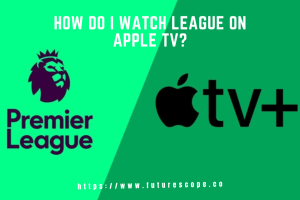What We Have Covered in This Article
Last Updated on February 18, 2023 by Editor Futurescope
There are a few reasons why you might be experiencing lag even though you have a good internet connection. It could be that your computer or device isn’t powerful enough to handle the game or application you’re using. Another possibility is that there’s something wrong with the game or app itself, and it needs to be updated.
Or, there could be too many people using the same internet connection at the same time, which can lead to congestion and slow speeds. Finally, your internet service provider could be experiencing an issue on their end.
If you’re experiencing lagging despite having a strong internet connection, there are a few possible explanations. Maybe your computer isn’t powerful enough to handle the game or application you’re using. Or, there could be an issue with the game or app itself.
Sometimes servers can cause lag, too. If none of these seem to be the problem, it’s possible that your router needs to be reset.
🔧 6 TIPS FOR LOWERING PING AND FIXING LAG / PACKET LOSS FOR GAMING 🔥✔️
Why Am I Lagging So Much?
There are numerous reasons that could be causing lag on your gaming PC. It’s possible that your computer is simply not up to the task of running the game you want to play. Maybe your hard drive is full and there’s not enough space for Windows to operate efficiently. Or maybe your computer is infected with malware. Before we get into reducing lag, it’s a good idea to identify the cause. Here are some of the most common causes of lag:
Software/Hardware Issues:
If your computer isn’t up to the task of running your favorite game, this can lead to poor performance. It’s possible that your PC isn’t able to run the game at all. This can be due to a number of factors, including: Not enough RAM Low-end graphics card Slow processor.
Malware:
Malware can infect your PC and take up valuable resources. Malware can slow down your computer significantly, leading to poor performance. Malware can also cause your PC to freeze or crash, which is never good when you’re playing a game.
Running Too Many Programs at Once:
If you have multiple programs running in the background while you’re playing a game, this can use up valuable resources and lead to lag. Try closing some of these programs before starting up your game, or better yet, close them all!
Internet Connection Issues:
Poor internet connections can affect your connection speed, leading to more lag than usual. If possible, try connecting to a faster wi-fi network or even upgrading to a wired ethernet connection.
Drivers:
Old drivers may not work as well as newer ones and could be slowing down your games. Make sure that all your drivers are up-to-date. This will help your games run more smoothly.
Why Do I Lag But My Internet is Good?
There are a few reasons why you might lag even if you have a good internet connection. One possibility is that your computer isn’t powerful enough to handle the game or application you’re trying to run. If your computer is more than a few years old, it might not be able to keep up with the latest games and software.
Another possibility is that there’s something wrong with your network connection. Even if you have a fast internet connection, things like a bad modem or router can cause problems. Finally, the server you’re trying to connect to could be having issues.
If lots of people are trying to connect to the same server, it can slow down everyone’s connection.
Why is My Ping Good But I Still Lag?
There are a number of reasons why you might experience lag even though your ping is good. Here are some of the most common causes:
1. Your computer isn’t powerful enough to run the game smoothly. This is often the case with older or cheaper computers. If your computer can’t handle the game, you’ll likely experience lag no matter what your ping is.
2. The game server is far away from you and/or experiencing high traffic. This can cause your packets to take longer to reach the server, resulting in increased lag.
3. Your internet connection is poor or unstable. This can cause packets to be dropped or delayed, leading to a decrease in performance and an increase in lag.
4. You have too many programs running in the background while playing the game. These programs can use up valuable resources that could be used by the game, causing it to run more slowly and lag more frequently.
How Do I Stop My Data from Lagging?
If you’re experiencing lagging data, there are a few things you can do to try and fix the issue. First, check your internet connection. If you’re on a wireless connection, try moving closer to your router or connecting directly to your modem with an Ethernet cable.
If that doesn’t help, restart both your computer and router. Still experiencing lag? The next step is to clear your browser’s cache.
In most browsers, you can do this by pressing Ctrl+Shift+Delete (Windows) or Command+Shift+Delete (Mac). This will open a window where you can select what type of data you want to clear – make sure to select “cookies” and “cached images and files.” Once you’ve cleared your cache, restart your browser and see if the lag is gone.
If you’re still having issues, there could be something wrong with your computer’s hardware. Try running a virus scan to see if there are any malicious programs causing the lag. If that doesn’t work, it may be time to contact a professional for help troubleshooting the issue.


How can I improve my gaming lag?
There are many reasons why your game may be experiencing lag. The most common causes include slow internet speeds, high ping times, low framerates, graphics settings too high, or an outdated operating system. Slow Internet Speeds Slow download speeds can result in a higher latency while playing online games due to the time required for packets of information to travel back and forth between server(s) hosting the game and player(s). This will affect how quickly commands register on-screen during gameplay.
If you’ve experienced high ping times, it could be due to a number of factors including server issues or even just being in the same room as another player with poor internet connection speed. This is especially true if that other person is streaming Netflix or watching YouTube videos on their computer while playing online video games – both require a large amount of bandwidth!
Slow Internet Speeds
Slow download speeds can result in a higher latency while playing online games due to the time required for packets of information to travel back and forth between server(s) hosting the game and player(s). This will affect how quickly commands register on-screen during gameplay.
High Ping Times
If you’ve experienced high ping times, it could be due to a number of factors including server issues or even just being in the same room as another player with poor internet connection speed. This is especially true if that other person is streaming Netflix or watching YouTube videos on their computer while playing online video games – both require a large amount of bandwidth! Slow Computer Hardware Graphics Settings Too High Some games require certain minimum specs to order to play properly such as 4 GB of RAM , 2 GHz processor speed with 512 MB dedicated VRAM available; however, setting these values too high may impact game performance negatively because more processing power will now need to be devoted towards rendering frames instead of just basic tasks like scrolling through menus. Outdated Operating Systems Some players report that upgrading their operating system helped fix lag issues they were experiencing while playing games like “The Witcher 3.”
Update Drivers
Be sure to update your graphics driver and any other necessary drivers on a regular basis to ensure optimal performance. You can find updates for Nvidia, AMD, Intel, and more at TechSpot. If the issue persists after updating your hardware, try uninstalling then reinstalling the game client itself.
Install More RAM
If your computer is lacking RAM, you can install additional memory to speed it up. The most common form of this is a DIMM (Dual In-line Memory Module). If you have 8GB of installed ram but only 4gb are usable by windows due to an older version of Windows being used, consider installing 16 gb into one slot until all slots are filled; this will give a total capacity of 24 gigabytes which should be enough for most users who play games at medium settings without too many stutters or crashes occurring while loading textures/backgrounds etcetera during gameplay. There’s also 64 bit versions that provide access up 128 GB DRAM so those interested might want take advantage early before prices rise further due to increased demand!
Updating Firmware
Sometimes outdated drivers on your system can cause stuttering in games. If the problem persists after updating your hardware, try uninstalling then reinstalling the game client itself.
Good Internet But Still Lag Ps4
If you’re experiencing lag while playing games on your PS4, there are a few things you can do to try and improve the situation. First, check your internet connection to make sure it’s running at optimal speeds. If your connection is good, but you’re still experiencing lag, there are a few settings on your PS4 that you can adjust to try and improve performance.
In the Settings menu, go to Network and select Set Up Internet Connection. From here, you can select either Wi-Fi or LAN depending on how your PS4 is connected to the internet. Once you’ve selected your connection type, choose Custom instead of Automatic for the IP Address Settings.
For DNS Settings, select Manual and enter 8.8.8.8 for the Primary DNS and 8.8.4.4 for the Secondary DNS (these are Google’s public DNS servers). Save these changes and exit back to the main Settings menu. Next, go to Sound and Screen > Video Output Settings > Resolution and choose 1080p resolution if it isn’t already selected (this is the highest possible resolution for PS4 games).
Finally, go to System > Enable HDCP and make sure this setting is turned OFF – HDCP stands for High-Bandwidth Digital Content Protection and disabling it has been known to reduce input lag in some cases.
Good Internet But Still Lag Xbox One
If you’ve been experiencing lag while playing Xbox One games, you’re not alone. Many gamers have reported the same issue, and it’s a frustrating problem to deal with. There are a few things that can cause this lag, and we’ll go over them so you can try to fix the issue on your own.
One possible cause of lag is your internet connection. Even if you have a good internet speed, it might not be enough for gaming. For online gaming, you need a low ping rate (the time it takes for data to travel from your console to the game server and back).
If your ping rate is high, that could be causing your lag issues. Another possibility is that there’s something wrong with your Xbox One console itself. This is less likely, but it’s still worth checking into.
Make sure your system software is up to date and try resetting your console by holding down the power button for 10 seconds. Sometimes these things can help clear up any issues that might be causing problems. If you’re still having trouble after trying these things, there are some other options available to you.
You can use an Ethernet cable instead of Wi-Fi to connect your console to the internet or invest in a gaming router specifically designed for reducing latency. You could also look into getting a faster internet package from your ISP if you think that might be the issue. Hopefully one of these solutions will help fix your lag issues so you can get back to enjoying your Xbox One games!
Why am I Lagging With Good Ping?
If you’re playing an online game and experiencing lag, it’s important to first check your ping. Ping is a measure of the latency of your connection to the game server. A high ping means that there is a lot of delay between when you take an action in the game and when that action is registered by the server.
This can make the game feel unresponsive and can be very frustrating. There are a few reasons why you might have a high ping even though you have good internet speeds. One possibility is that there is congestion on your ISP’s network or on the network between your ISP and the game server.
This can happen at peak times when everyone is trying to use the internet at once. Another possibility is that the routing between your computer and the game server isn’t optimal. This could be because of firewalls or other security measures that are in place on corporate networks, for example.
If you’re experience high ping despite having good internet speeds, there are a few things you can try to improve your situation. Restarting your router may help if there is congestion on your network. You can also try connecting to the game server using a VPN, which can sometimes route around problems with firewall configurations.
Finally, if all else fails, you may need to switch to a different ISP or upgrade your internet package to one with higher speeds.
How to Reduce Lag on Your PC?
Once you’ve identified the cause of the lag, it’s time to fix the problem. Here are some simple steps you can take to reduce lag and improve your gaming performance: Install More RAM If your computer is lacking RAM, you can install additional memory to speed it up. Random access memory (RAM) is a form of data storage used in computers. It stores information for the CPU (Central Processing Unit) to read, so that it can process information faster. Once you’ve identified the cause of the lag, it’s time to fix the problem.
Here are some simple steps you can take to reduce lag and improve your gaming performance:
Install More RAM If your computer is lacking RAM, you can install additional memory to speed it up. Random access memory (RAM) is a form of data storage used in computers. It stores information for the CPU (Central Processing Unit) to read, so that it can process information faster.
1. Turn off your computer and unplug it from the power outlet.
2. Remove the battery (if applicable).
3. Remove the cover/casing on the side of your PC, revealing all the hardware inside.
4. Find the RAM slot, which should look like a small rectangle with two metal contacts on each end. It might be labeled RAM or Memory.
5. Insert the new memory into the RAM slot and push it down until it clicks into place.
6. Replace the battery (if applicable) and reattach the cover/casing.
7. Plug in the power cord and turn on your PC. Install More RAM If your computer is lacking RAM, you can install additional memory to speed it up. Random access memory (RAM) is a form of data storage used in computers. It stores information for the CPU (Central Processing Unit) to read, so that it can process information faster.
Install More RAM If your computer is lacking RAM, you can install additional memory to speed it up. Random access memory (RAM) is a form of data storage used in computers. It stores information for the CPU (Central Processing Unit) to read, so that it can process information faster.
Fix the Lag With a Faster Internet Connection Most games run best when they’re connected to a fast, stable internet connection.
Conclusion
If you’re experiencing lag while playing video games, even though you have a good internet connection, there are a few possible reasons why. One reason might be that your computer isn’t powerful enough to handle the game you’re playing. Another possibility is that your internet connection isn’t actually as good as you think it is.
There could also be an issue with the game’s servers. If none of these things seem to be the problem, then it’s likely that something is wrong with your router or modem.









